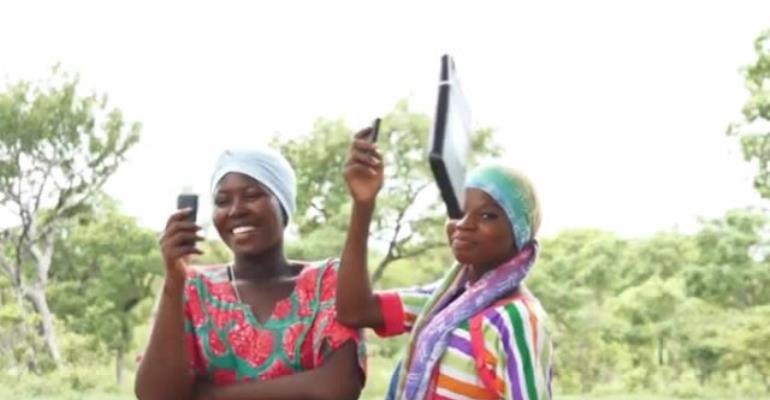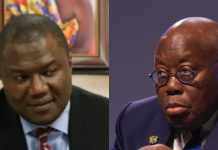
‘It’s like living in a hole’ – Justice Baidoo in Kpalworgo, UW/ Region
“Some people in Ghana, they can stay in their bedroom and make any call to anyplace. But as for us, we have to take a motor, buy fuel and ride to where the tree is before we can call”, says Ajaara Adams as she stands on the outskirts of the small village of Kparlwogo in the Upper West region.
Ajaara grew up in this town and is now a teacher, helping educate children in a town where she says no one would accept posting to.
Kpalworgo is one of manycommunities in the Wa East district without a telephony network. Residents say about 80% of the districts land area is in blackout when it comes to connectivity.
Mobille phones will account for about a tenth of GDP in Africa in the next ten years. In Ghana, mobile phones in use now outstrips the over 26 million people in the country and yet not everyone is benefiting from this boom.
Large swathes of landmass, especially in the already deprived three regions in northern Ghana are not covered by telephony network. This worsens the already harsh economic conditions there.
“Behind our town, there are more than ten other communities who have worse situation”, says Aziz …..a community leader in Kpalworgo.
“Telcos work as a business and would mount their poles only in areas where there are people enough to give them back their investments and so it is the responsibility of government to ensure the provision of connection in hard-to-reach communities as a necessary service. Because access to network is more like a human right now”, says Pope Barnabas, who works with Ghana Telecoms Chamber- a chamber that speaks for telcos in Ghana.
Stories abound in the Kpalworgo town on the negative toll that the lack of mobile telephony network continues to have on people. One of the most striking is that of 45 year old IliasuHalidu.He lost his wife who was in labour two years ago because there was no network to call an ambulance when her labour got complicated.
“When her delivery became serious we had to take her to a hospital because she couldn’t deliver at home. There was no vehicle; they said we should call a car. We wanted to call but there was no network, we waited for the network, it didn’t work”, he said.
It’s been three years since Halidu’s wife died. One of the few good things that has happened to the people of Kpalworgo since thenis government putting up a small clinic to help attend to emergency cases like delivery of women in labour. That has made a huge difference for people here.
A brightly painted three-room structure tucked away on the outskirts of the town. The facility is a well-resourced centerwith modern equipment funded by the Japanese government.
“Now, at least when someone is in dire need of healthcare, he won’t die. There’s a place we can take him without looking for a car or making a call”, says Halidu.
But even here, the challenge is that, health workers say they are cut off from the rest of the world, unable to make calls even when they are to make a referral.
“Most of the work we do here is to refer and before we refer we have to make sure where we are sending people to there is someone on duty and they are ready to receive an emergency but we can’t. We just ask them to go like that because we can’t call”, says Richard Dakura, Community Health Nurse in charge of the center.
The story of Kpalworgo is the story of hundreds of other communities in Ghana. “We have about 1,800 other villages that do not have network in the country. It is a national problem”, says Abraham Kofi Asante, Administrator of the Ghana Investment Fund for Electronic Communications (GIFEC). In 2005 the government of Ghana formed GIFEC and by law started taking one percent of the annual revenues of every telephony company operating in the country to help bridge the communications gap in the country.
This money is supposed to go into the establishment of cell sites in offgrid communities to enable them access network as they are underserved by the masts put up mainly in big cities.
Sources say GIFEC got in excess of 60 million cedis last year alone from this arrangement and yet very little seem to have been done on the ground.
“When we took charge in 2107, GIFEC had connected only 185 sites since 2005”, Mr Asante says.
Concerns have been raised about the manner in which GIFEC has applied the money that comes to it in the past.
“The core mandate (of GIFEC) is to provide connectivity in the area of voice in the area of internet …, I think the past GIFEC had not applied its resources in the areas that were not core areas. For example fishing” he says.
According GIFEC, the expectation is that about 700 communities would be connected before the end of 2019- that should include Kpalworgo according to GIFEC.
Government wants to formalize the economy taking advantage of booming number of phones currently in use and the global digital drive and yet, it seems many, like the people of Kpaworlogo are being left behind.
“Sometimes you feel like we the people here, we are not Ghanaians because nothing good comes here. It’s like living in a hole”, Ajaara says.
Story by Ghana| Justice Baidoo |justice.baidoo@myjoyonline.com>









